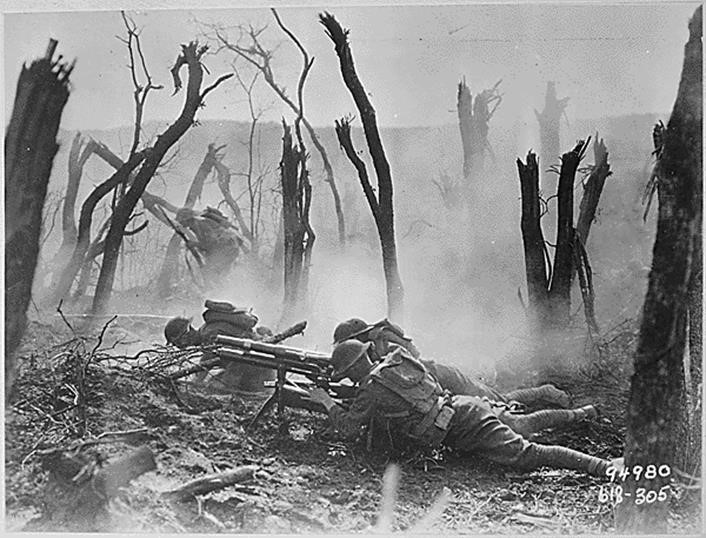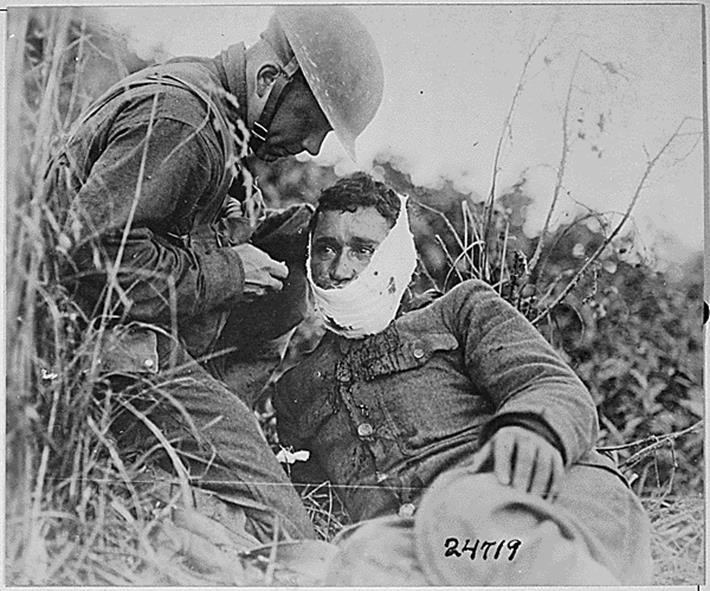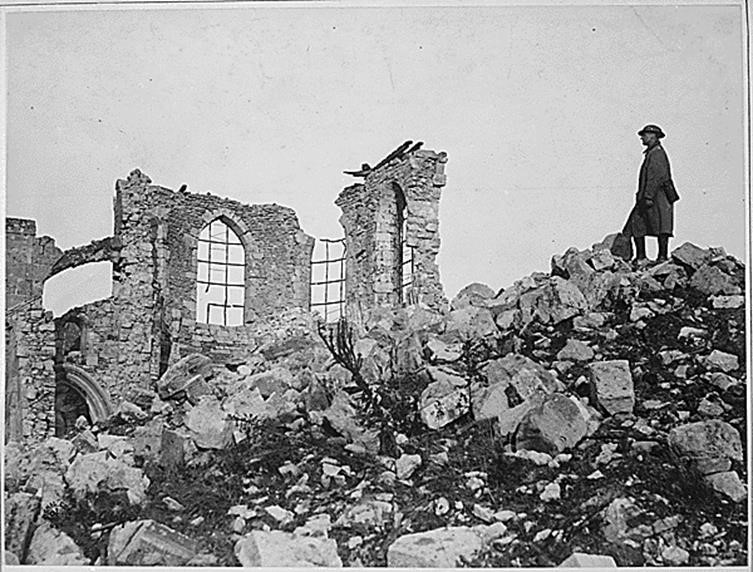
100 Years After U.S. Entry into World War I
Today marks 100 years since the United States entered the First World War, a war with implications we are still directly dealing with today. Despite that war being the war to end all wars, it did anything but. But that was hardly the war’s fault; the carnage seen on the battlefields of Europe was unlike anything seen before on that continent. Advances in weaponry, particularly artillery and machine guns, left a wasteland of human life across a moonscape of tragedy. It shaped a flawed Middle East which has still not come to grips with the arbitrary divisions imposed on it by the victorious nations. In that so-called Great War, over 116,000 Americans died in a mere 19 months of combat. Let that sink in for a moment.
100 years later, the United States still hasn’t fully embraced the lessons of that war. In school, we learn that it was a waste of life. That secret alliances, overly-eager leadership, and advances in technology led to the carnage. We learn that the treaty of Versailles punished Germany harshly, that the League of Nations was a failure, and that the unresolved issues of the war led to yet another, bloodier world conflict. We learn that the influx of doughboys onto the Western Front tipped the tide against the Central Powers.
Yet there is more to it than that. The real lesson of WWI is that America is a vital contributor to world security, that American leadership matters, and perhaps more importantly, America must plan for what comes after its wars. This last part is critical. Getting this wrong is what makes the loss of life even more tragic.

The American people should understand that staying engaged in the world is putting America first. The global economy, air travel, and the internet have all shrunk this world to a size previously unimaginable—a size where “over there” is no longer so very far away. The tools we built over the past 70 years, having recognized how badly the aftermath of WWI went, are critical for preserving national security. We should not forsake them because they are imperfect—we should instead support their improvement and success.
Getting the end game wrong, as happened with WWI, demands further sacrifice from America and her people. Getting it wrong in Afghanistan in the 1980s and 90s led directly to 9/11. Getting it wrong in Iraq in 1991 led to the deaths of over 100,000 Shiites and a continuation of the war 12 years later. Getting the end game wrong yet again led to the rise of ISIS, and yet more American sacrifice.
We have seen what getting it right looks like. American dedication to the future of Europe after WWII did a great deal to secure a lasting peace. It was not perfect, as millions of Eastern Europeans were subject to Soviet occupation and repression for years to come, but it did prevent a return of the mass carnage the European continent had seen so many times before. We remained sensitive to Japanese culture at the end of WWII, allowing Emperor Hirohito to remain in power, and helping Japan to build a world class economy. This doesn’t mean Marshall Plans for everyone, but it does mean having a plan, and understanding when it needs to be modified.

So how do we finally come to terms with the lessons of 100 years ago?
First, America must always exhaust every option before committing its troops to armed conflict. Every life and every sacrifice is precious, and that should never be forgotten. This must be balanced against America’s isolationist tendencies seen at the beginning of both World Wars. The threat of American intervention carries a lot of weight, and can sometimes be used to influence conflict without firing a shot, if those threats are credible. This is the very reason NATO was so successful at preventing the Cold War from becoming hot, and why American commitment today is crucial.
Second, when America does commit its troops, it must have a clear idea of an achievable goal, and commit more than just military resources to achieving it. This means diplomacy, resources, expertise, contingency planning, burden sharing, and all of the other tools that are part of a comprehensive strategy for victory. Defunding our non-military tools of influence is a huge mistake.
Third, we must expand the pie. People in conflict zones must be given a stake in the victory. It’s not enough to promise freedom and democracy—these things don’t just happen because we’ve eliminated a dictator or destroyed a terror group. A great deal of non-military work must be done to realize the promises of democracy. Further, we want other countries to do well, especially those with which we are at peace. Raising standards of health, security, and prosperity around the world will contribute to America’s benefit.
In the end, we must fully understand both the consequences of war, and the consequences of peace. We must recognize both the power and limitations of what our military can accomplish. And once the military mission has been accomplished, we must put in the work required to secure a lasting peace, not just a temporary one.





